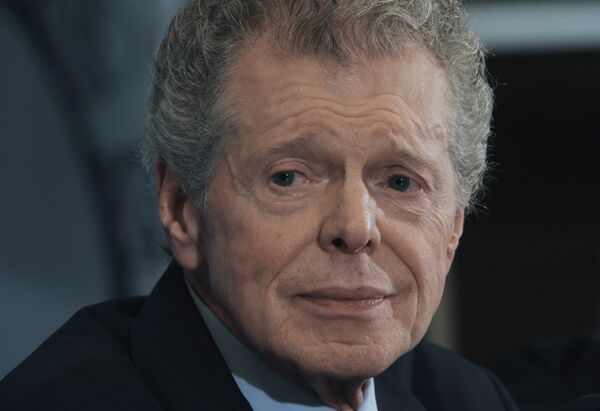In 1958, Van Cliburn conquered millions of Russian hearts and shot to instant international fame when he won the first international Tchaikovsky Competition at the height of the Cold War. Legend has it that Soviet leader Nikita Khrushchev had to give his personal permission for first prize to go to an American.
The early stardom of this outstanding romantic pianist was followed by an uneven career in the increasingly demanding world of classical music recordings. Cliburn, who is now 75, still performs, although rarely, but his name will forever occupy a special place both in the history of the piano and that of Russian-American cultural relations. During a recent visit to Moscow, when he gave a master class as a part of the Slava Maestro Festival in memory of Mstislav Rostrapovich, RIA Novosti’s Irina Gordon talked to Cliburn.
Q. -- What role has the first Tchaikovsky Competition and Russia in general played in your life?
A. -- Everything. They were so wonderful to me. It was a dream coming here. When I was five years old I wanted to come here. Never dreaming that 18 years later I would be here. From the first moment I played before a Russian audience it was a revelation, a great inspiration, I’ll never forget that. So, all my life I carry with me Russia.
Q. -- Ever since you won the Tchaikovsky competition in 1958 you have been an idol here in Russia. Russians were absolutely in love with you back in the 1950s, and still everybody knows your name here. What can you say about Russians?
A. -- What can I say about Russians? I love Russians, you know that. I can remember I told president Putin in 2004, when he graciously gave me the Order of Friendship, that the most important thing to me, the gift that Russia gave me was their love. And to be wanted here is something that I feel is the greatest gift that I have.
Q. -- I know there is a story that you dreamed of coming to Moscow ever since you were a child.
A. -- When I was five my parents gave me a children’s history book of the world. Certainly I came to the photograph of the Kremlin. And I saw the Church of Saint Basil, the Cathedral of Intercession. And my heart missed a beat. I said: “Mummy, daddy, take me there.” I could not believe that finally, 18 years later, I was there. And the very first night in Moscow - it was March 26, 1958 - I asked the lady from the Ministry of Culture, Henrietta Balayeva, whom I still know: “Wherever I am to stay, is it possible to drive past the Kremlin and that church?” And she said: “Of course.” I will remember that night forever.
Q. -- Is Red Square still your favorite place in Russia?
A. -- Every time I come to Russia, it is the first place I go and the last place before leaving.
Q. -- I know you are going to visit Red Square tomorrow. What keeps you coming there?
A. -- The beauty. Beauty is eternal. Great music is forever. I love those things, because they keep us civilized. You Russians have one of the greatest cultures, and you also have a unique geographical position, you are both East and West, therefore, you can understand the world.
Q. - Have you any secrets or methods for unveiling the essence in your musical work?
A. -- If you find one of the secrets, please call me. I am still looking for them. The beauty of classical music is that each time you hear it or you have to play, it is different. Each time you see something or hear something that you did not the time before. That is the eternal quality of classical music: there are no tales told twice; each time is like the first time.



